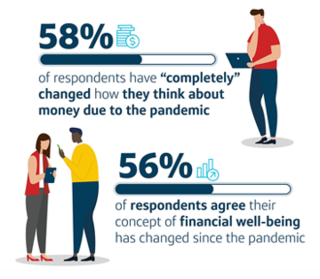Motivation
How Goal-Setting Is Achievable During the Holidays
Three ways to set goals you feel confident in achieving.
Posted December 22, 2021 Reviewed by Gary Drevitch
Key points
- A new survey found that 20% of people began working toward new goals due to COVID-19 uncertainty.
- Implementation intentions — what, how, when — is a scientific approach to meeting your goals.
- Time your rewards to be unpredictable (intermittent) to get their optimum benefit of them.
The holiday blues can affect all of us. Researchers suggest that the combination of less sunlight exposure and changes in sleep patterns can affect your mental health, resulting in higher levels of stress and depression. This, in turn, can cause you to make impulsive decisions that negatively impact your quality of life.

Recent research from Capital One explores the mental, physical and financial health of Americans, from pre-pandemic to now. The survey of 2,000 Americans found that 56% of respondents believe their concept of financial well-being has changed since the pandemic and is impacting the degree to which they consider themselves financially healthy:
- Men are nearly 20% more likely to classify their finances as healthy (58%; vs 39% for women).
- Almost half of all women (47%) agree they need a complete financial overhaul. This is compared to the 35% of men who said the same thing.
These responses imply that consumers are seeking changes to the way they conduct their financial business. In fact, 20 percent of respondents picked up new financial habits or began working toward new goals as a result of the uncertainty of the COVID-19 pandemic. The most popular financial goals include setting a budget, paying off credit card debt, starting an emergency fund, tracking credit scores more closely, starting to save for retirement and learning about investing.
Take-Away
Whether a financial, mental, or physical health goal is on your 2022 radar, it’s important to know that self-efficacy, the belief that you can accomplish your goal, is a major factor in achieving your resolutions. In my research, I found that the positive emotions we experience from doing an activity will fuel our self-efficacy. If you are having a hard time convincing yourself that you can stick to your goal, take a moment and think about how good that activity makes you feel
Often in our enthusiasm we list too many resolutions and get overwhelmed by trying to do them all. For 2022, follow these three hot-off-the (research) press ways to set goals that you can feel confident in achieving.
- Make a list. Make lists of your goals. Write down what you need to do to achieve each one, in as much detail as you can (what, where, and when). And do this every day, or as often as you can. Psychologists call this implementation intentions. This strategy has been found to be highly effective in over 100 studies: Tell yourself what you are going to do, how you are going to do it, and when.
- Create a happy activity to do daily (like grabbing coffee from your local shop, reading a book, or running). The benefit of creating a happy activity is that it creates a concrete and achievable way to have a sense of agency. Holiday stress is often the result of things feeling out of our control. Creating a daily, happy activity is a small concrete way to recover some intention and locus of control.
- Change your rewards. It’s not so much that rewards help you maintain your goal but the timing of your rewards. Psychology research shows that when rewards are received on an intermittent (unpredictable) basis, we are more likely to continue with that behavior. Rewards are also more effective than punishment, so don’t be too hard on yourself if you don’t meet your goals.
I’m partnering with Capital One to share recent research they conducted to explore the financial, mental, and physical health of Americans, from pre-pandemic to now.


